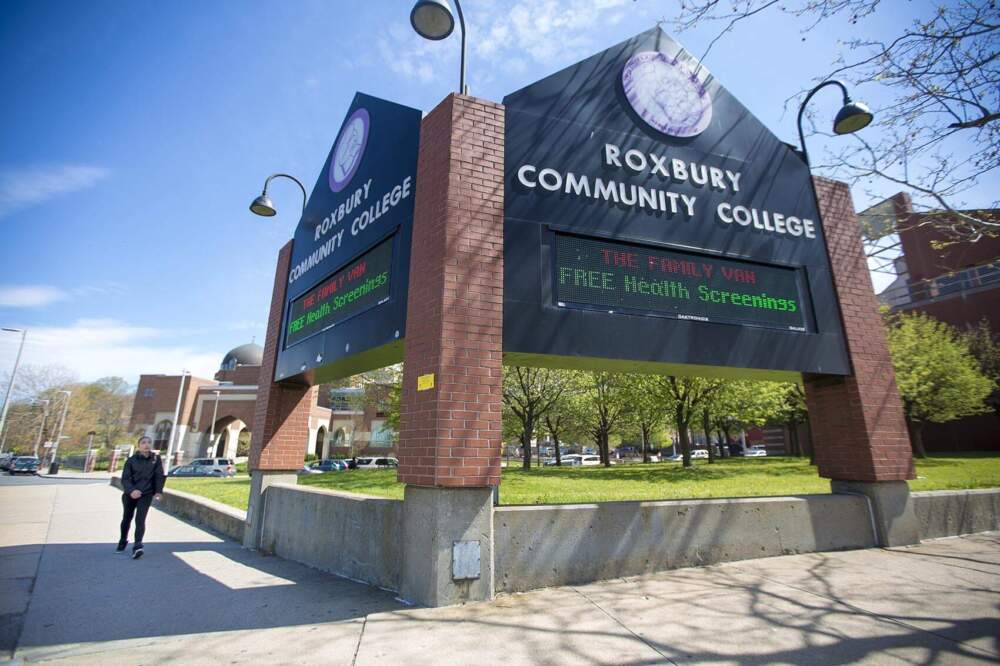Advertisement
Community colleges see enrollment climb after it becomes free for those 25 and older

The number of students studying at the state's community colleges shot up in the fall semester, driving the first undergraduate enrollment increase at Massachusetts public colleges and universities in a decade, officials announced Tuesday.
There were 152,739 undergraduates enrolled this fall across state universities, University of Massachusetts schools and community colleges, an increase of 2.9% compared to fall 2022, according to new Department of Higher Education data.
While the jump marks the first time total undergraduate enrollment was higher than the prior year since 2013, the trend was not universal across all campuses. The number of undergraduates dropped 1% at UMass campuses and 0.6% at state universities from fall 2022 to fall 2023, though officials said the decline at state universities was more muted than in recent years.
A sizable single-year increase — 8% — at community colleges drove the overall trend upward, the data show. Officials said each of the state's 15 community colleges experienced some enrollment growth.
Lawmakers and Gov. Maura Healey have embraced using state dollars to make higher education more affordable, starting with community colleges. The fiscal year 2024 state budget deployed $20 million to cover any unmet community college costs for students 25 and older without a college degree.
Healey said in a statement Tuesday that her team is "thrilled to hear that our efforts to expand access to higher education are showing results."
"This enrollment data supports anecdotes that I've been hearing from students, faculty, staff, and families across the Commonwealth — students are already taking advantage of the historic new opportunities available to them under the Healey-Driscoll administration," Education Secretary Patrick Tutwiler said. "It's great to see this turn of the tide in the enrollment at our institutions of public higher education, and wonderful to consider the new perspective, energy, and skills these additional students will bring to these institutions, their communities, and our state."
Enrollment had been falling for nearly a decade before the latest jolt, driven by demographic changes and by an apparent wariness among some students to take on the rising costs of earning a degree.
The fall 2023 tally is still about 44,000 students, or 22%, below enrollment in the fall 2013 semester, which was the last time the trend was still moving upward.
Advertisement
Officials plan to publish more detailed data early next year about student race and ethnicity, gender, age and other demographic factors influencing enrollment. They also said they will "share more information on the impact of MassReconnect and other new programs to enrollment" in 2024.
"Today's enrollment report is good news, but it only represents a first step. The Department remains committed to ensuring that all students who enroll in college complete their education," Higher Education Commissioner Noe Ortega said. "Postsecondary success remains the north star for the Department."
On the day the Healey administration announced the enrollment trend, supporters of a bill that would invest significantly in higher education announced a new campaign to drum up support for the so-called CHERISH Act.
Ads will hit airwaves during December, and feature professors at Massachusetts' public colleges and universities discussing how provisions in the bill would help students and faculty.
"The high cost of college is making it harder for many of my students to complete their degree on time, delaying their ability to access the good-paying careers they need to provide for their families," Phyllis Keenan, a Greenfield Community College math professor, said in one of the new ads. "The CHERISH Act can fix this by providing debt-free higher education."
The ads are sponsored by the Massachusetts Teachers Association, which has thrown its weight behind the bill. Asked Tuesday how much the campaign cost, a spokesperson said a "significant amount" but would not disclose the exact price.
The CHERISH Act aims to support debt-free higher education, beginning in fiscal year 2024 with debt-free community college. It would also ensure eligibility for state health care and retirement benefits for adjunct faculty and part-time staff, and institute minimum funding levels for public higher education that would be phased in over five years and prohibit tuition and fee increases during this implementation.